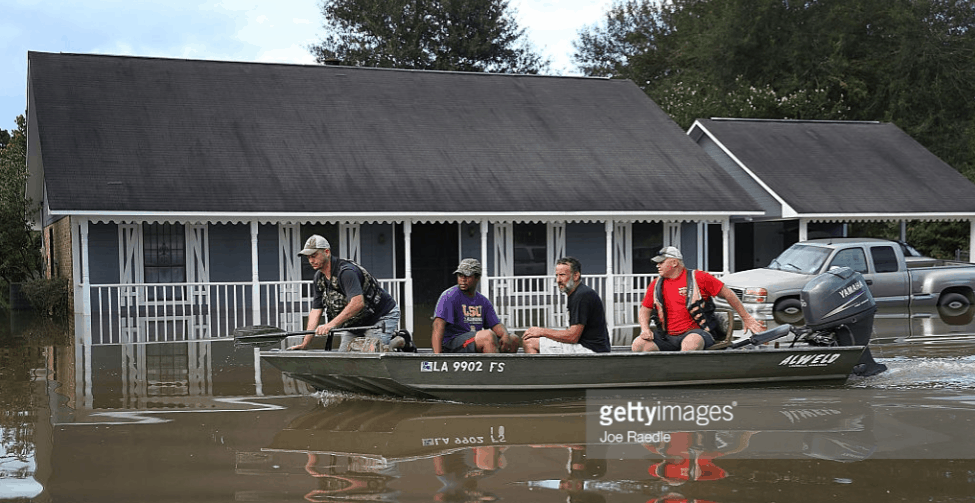When I first heard about the shooting of Alton Sterling in Baton Rouge, followed by the killing of three police officers just days later, I could hardly recognize my hometown. “Surely we are better than this?” I thought to myself.
I love Baton Rouge and the friends I have there. It is a city of hospitality, community, and LSU football. It was a wonderful place to grow up, and the experiences I had shaped my decision to join the Jesuits. The attention the city received by national news agencies, however, highlighted the tragic nature of the shootings, and it was difficult to recognize the place which shaped my vocation to enter religious life. So it was with great sorrow that I watched this tragedy unfold in my hometown from a distance. As the city grappled with healing from the pain and divisions exposed through the tragic shootings, I wondered at the future of my hometown and where redemption would be found.
By mid-August, Baton Rouge had once again made the news, with reports of historic flooding in the city and surrounding areas. I could hardly believe what I was hearing from my family. Thousands lost all they had, and with little warning of the unprecedented rainfall, most had no time to prepare for the flash floods. But as the water levels increased, so did the rescue efforts of hundreds of individuals. Strangers took to the flooded streets with their jon boats and surface drive engines to help stranded neighbors. The “Cajun Navy” launched into the water, conducting unofficial rescue efforts and saving thousands.
I watched from afar my high school friends coordinate with complete strangers to conduct systematic sweeps of flooded areas. Others created Facebook groups for those trapped to call for help and to dispatch those in running boats. The whole city came together amid the storm to help one another. As the storm subsided and the water receded, neighbors and friends wasted no time to begin the recovery process—stripping drywall, hauling trash to the street, and providing many essential items to displaced families.
The images of the drowned city were difficult for anyone to see. But as I began to learn of childhood friends whose homes filled up with ten feet of water, who lost loved ones to the flooding, and whose futures were suddenly financially unclear, the tragedy became deeply personal for me. It was no less personal, however, for me to see, in the midst of this sorrow, individuals coming together for one another.
These stories of Baton Rouge following the flooding reveal the depth of community found in the fellowship of being neighbors. Like the early Christians of Acts 2, individuals came together to perform wondrous acts of love, sharing signs of God’s love still active in our world today. Indeed,the rescue and recovery go beyond material assistance. They reveal the capacity humanity possesses when compelled by love.
As Baton Rouge heals from the flood, it will need to heal in so many other ways, too. The shootings from July revealed the tensions of marginalization and division, the reality so many in our city face day to day. And yet when the storm came, the only thing that mattered was that fellow Baton Rougeans were in trouble. The response was one of love.
If these rescue and recovery efforts are responses of love, then we cannot stop there. The healing our city needs must begin in this same spirit. Moving forward, I hope we can remember the moments of unity and cooperation in order to avoid retrenching in old divisions. By recalling the moments of solidarity experienced and witnessed over these last few weeks, I think we can carry that redeeming love into the future. Let’s not wait for another tragedy to unite us as a community again.


